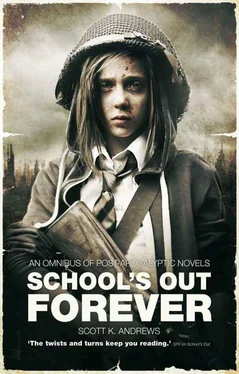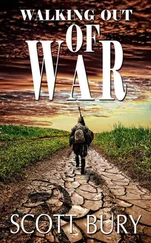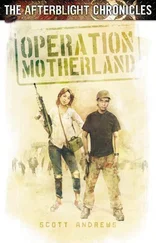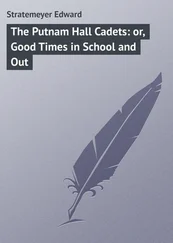The captain was staring at the floor, at poor dead Julie, his jaw clenched, furious and armed and eager to avenge the death of a soldier under his command.
“No, I don’t,” he said eventually. But it was an effort, I could tell.
“Good,” I said. “Then here’s what we’re going to do. Rowles, throw your gun over here.”
He did so.
“Captain, lower your gun and uncuff me. Then we’ll walk out of here, brew up a nice cup of tea, have some of Mrs Atkins’ flapjack and sort this out like civilised adults.”
The captain half laughed, a mixture of amusement and warning. Then he nodded.
I breathed a sigh of relief as he withdrew his gun from my stomach.
But I was a fool.
Quick as a flash he stepped sideways and opened fire at the staircase behind me. The noise was unbearably loud in that enclosed chamber. I whirled to see what was happening and felt something hot and sharp hit my left ear. I caught a glimpse of Rowles diving to his right, gun in hand, muzzle flaring. The light bulb was shot out and we were plunged into darkness, lit only by strobe flashes of gunfire.
I should have dived for cover, but I was frozen in place. I should have shouted for them to stop, but my teeth were too tightly clenched.
I don’t know how many rounds were fired, but I heard the captain give a low grunt and the gunfire stopped. All that was left was the ringing in my ears and the soft thud as someone hit the floor.
“Matron!” shouted Rowles in the darkness. It wasn’t a cry for help, he was desperate to know that I was okay, which meant that it was the captain lying on the ground.
“I’m here, I’m fine. Quick, find the keys to the cuffs, they’re in his top right breast pocket.”
“Okay.” I heard him fumbling about in the dark. There was no point shouting at him now, but something was going to have to be done about that boy. He was leaving far too many corpses in his wake. I worried what he’d be like without me to keep him in check.
I heard the jingle of keys and Rowles began feeling around for my wrists.
“Oi! Hands!”
“Sorry Matron.”
“Do you always carry two guns?” I asked as he unlocked the cuffs.
“Three. One for show, one in my boot, one in my trousers.”
I crouched, found the captain, and took his pulse. He was alive, just about. I grabbed his gun and stood up.
“How many?” I asked.
“Two in the courtyard, one at the front door.”
“I meant, how many did you kill?”
“Oh, um.” There was silence as he did a little bit of mental arithmetic. “Five, including this one.”
“Jesus, five!? How the hell did you manage that?”
“There were three of them on the perimeter, in the woods.” He sounded confused. Why was I asking such a pointless question? “I did them one at a time. Quietly. Then the girl, then him.”
“We’re going to have a very long, very serious talk about this when we’re done, young man.”
“Yes, Matron.”
“But for now, options?”
“You’ve got one option,” said a voice from the hall upstairs. “And that’s to walk up these stairs with your hands above your heads and surrender. Or I toss a grenade down there and blow you to pieces.”
I HELD THE scalpel in my hand and looked at the mess in front of me.
The captain had taken two bullets to the chest and there was massive damage. His breath was just a soft, raspy whisper, laboured and painful. I knew there was nothing I could do to save this man’s life. He was dead already.
I didn’t have any of the equipment I needed to try and stabilise him, but at least I had a blood donor — Green, the school’s senior boy and an avowed pacifist who never touched a gun, had volunteered.
I stood in the enormous kitchen and looked across the operating table, which was really just a big wooden kitchen table that I’d washed with alcohol and spread a clean sheet over. The sharp tang of the alcohol mixed with the iron smell of the captain’s blood and burnt my nostrils. The only light came from the window but the sun had come out and was streaming through the old mottled glass.
Green was lying on a couch that we’d dragged to the far side of the table, a tube coming out of his arm snaking its way into the captain’s. Beyond him, in front of the Aga, stood the young soldier who’d assumed command after his C.O. had been shot. His eyes were wild with shock, and his face was pale. He was only a kid, barely in his twenties, and he was nervous and twitchy. But he had Rowles kneeling on the cold floor tiles, with his hands handcuffed to a radiator, and a gun aimed at the back of his head. Rowles seemed only mildly concerned, as if this was a minor inconvenience rather than the last minute of his life.
“I mean it,” shouted the soldier, barely in control of himself, his thick Bradford accent sounding strangely out of place. “You said you were a doctor. You save the captain or I execute the boy right here. Then you. If he dies, you die.”
There was nothing I could do. I needed to buy some time, think of a way out of this. So I raised the scalpel and made the first incision.
And with a low groan, the captain died.

CHAPTER NINE
I REMEMBER THE day Kate decided to become a doctor. She was nine years old.
It was a cold, wet Sunday morning and her gran had taken her to the local swimming pool. It was a grotty, run down place with cracked tiles and graffiti on the doors of the changing cubicles, but she loved it there. There was a girl from her school called April, and they would meet there and splash around every week. I remember that they were always giggling. Their shrill little voices must have echoed around that pool and driven all the adults nuts, but they didn’t know or care. Kate’s gran just sat there watching them with an indulgent smile.
The pool attendant was supposed to stop anyone running on the slick, wet tiles, but he couldn’t be bothered. He was too busy chatting up bored mums. That morning he was nowhere to be seen.
Anyway, that Sunday, April and Kate were having a splash fight in the shallow end. It wasn’t that busy, there were about ten or fifteen people in the pool and a collection of parents reading the Sunday papers on the hard wooden benches. There was one guy swimming lengths. He was fast and energetic, obviously there for exercise rather than fun. He was bald and slightly pudgy, and he was red in the face as he swam past them, gasping for air.
I remember Kate doing an impression of him — rolling her eyes up, pouting like a guppy and turning her face puce — and making April laugh. Then suddenly the man was thrashing about in the water, gurgling and trying to shout for help. Kate didn’t know what was going on, but April surprised her by shouting loudly: “Help! Someone get a doctor!”
Kate’s GP was Doctor Cox, a small sweaty man who smelt of boiled sweets. She neither liked nor disliked him, he was just a fact of life — the guy who gave her injections and took her temperature when she had flu. Kate couldn’t imagine how he’d be able help a drowning man.
Then this mumsy woman with short blonde hair came running out of the pool attendant’s changing room wearing only her bra and pants, and dived cleanly into the water. She swam to the man and wrestled him to the side, keeping his head above water. By the time she’d got him to the edge the attendant had joined her, pulling on his t-shirt as he ran. Together they heaved the man on to the side and the woman knelt down beside him. A little gaggle of curious bystanders gathered to watch.
“Give me room,” shouted the woman. “I’m a doctor.”
Читать дальше













